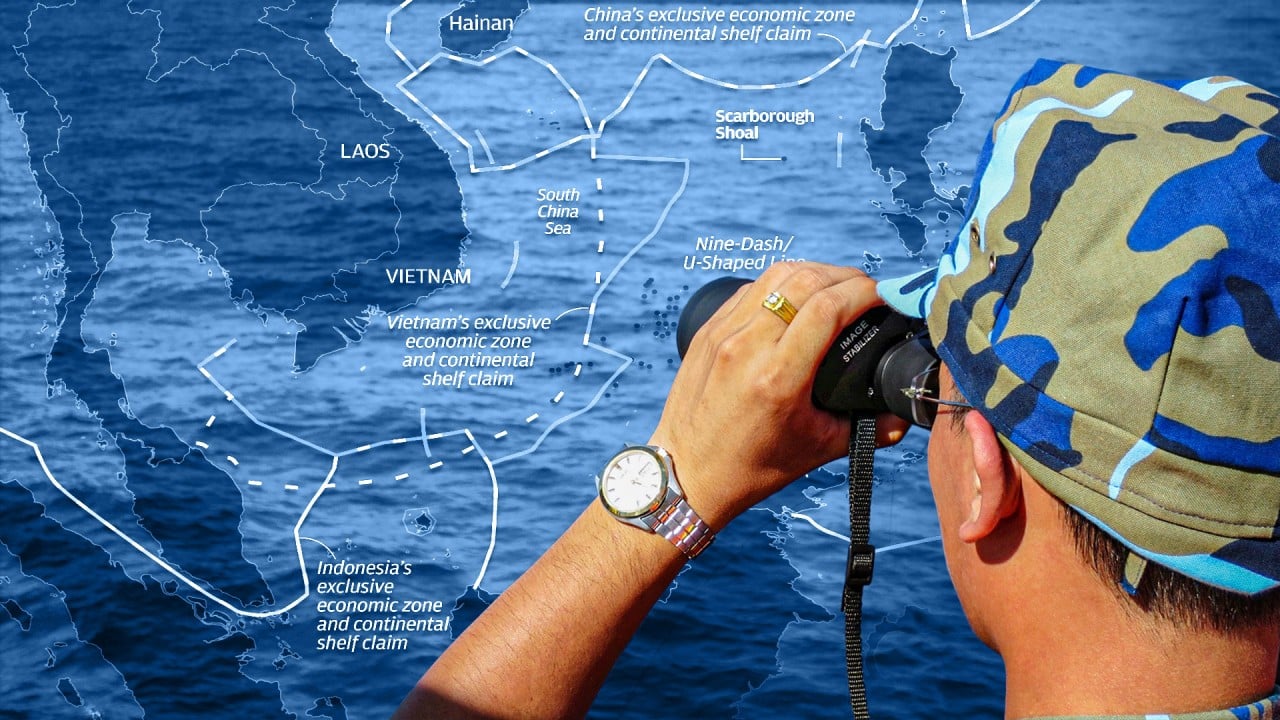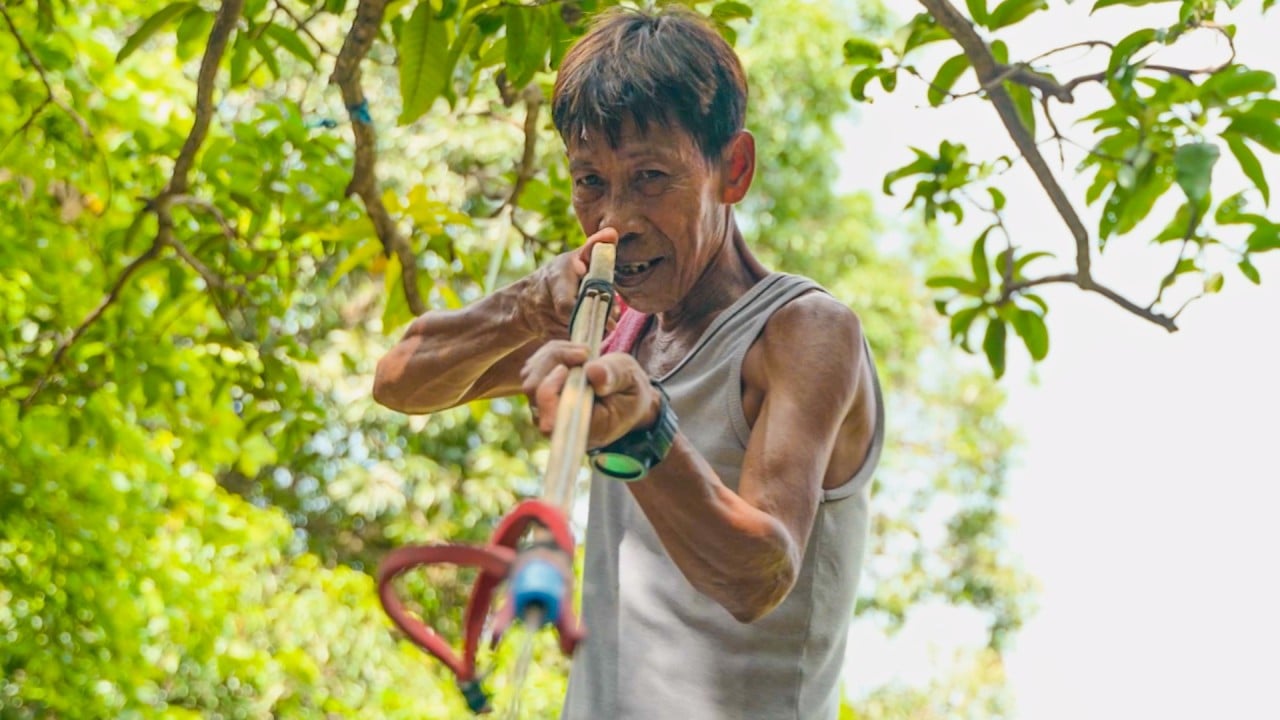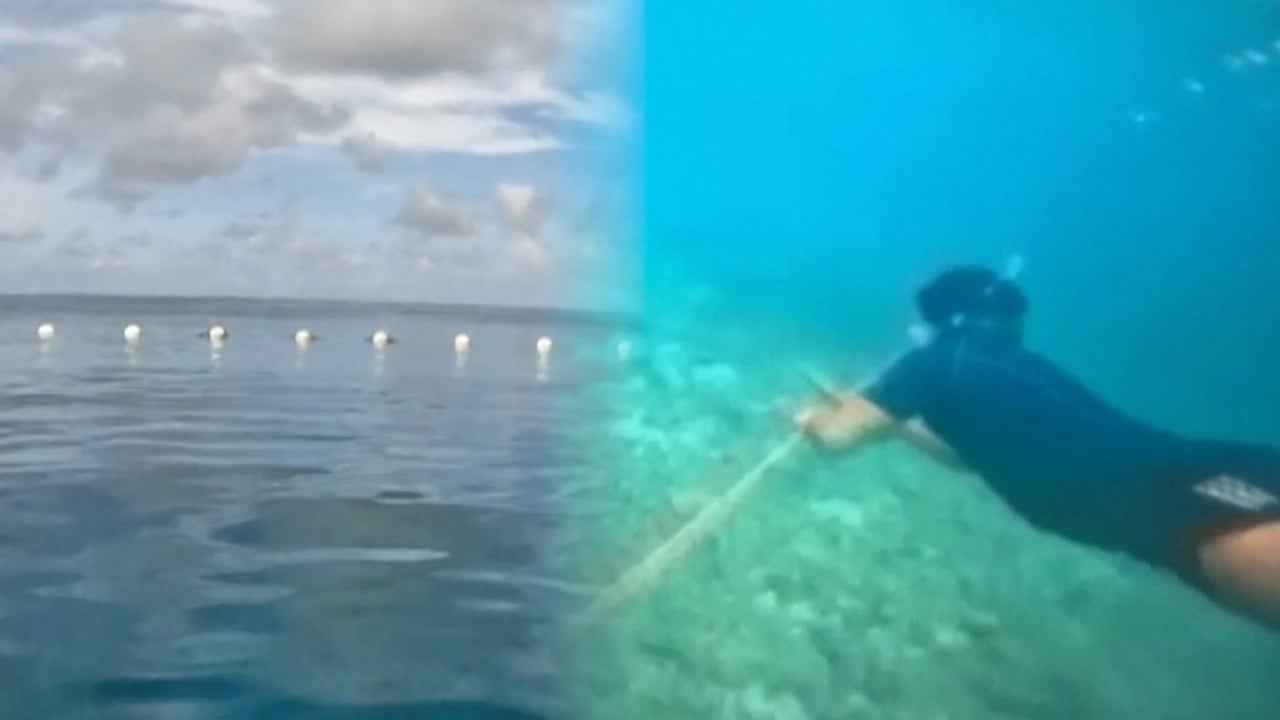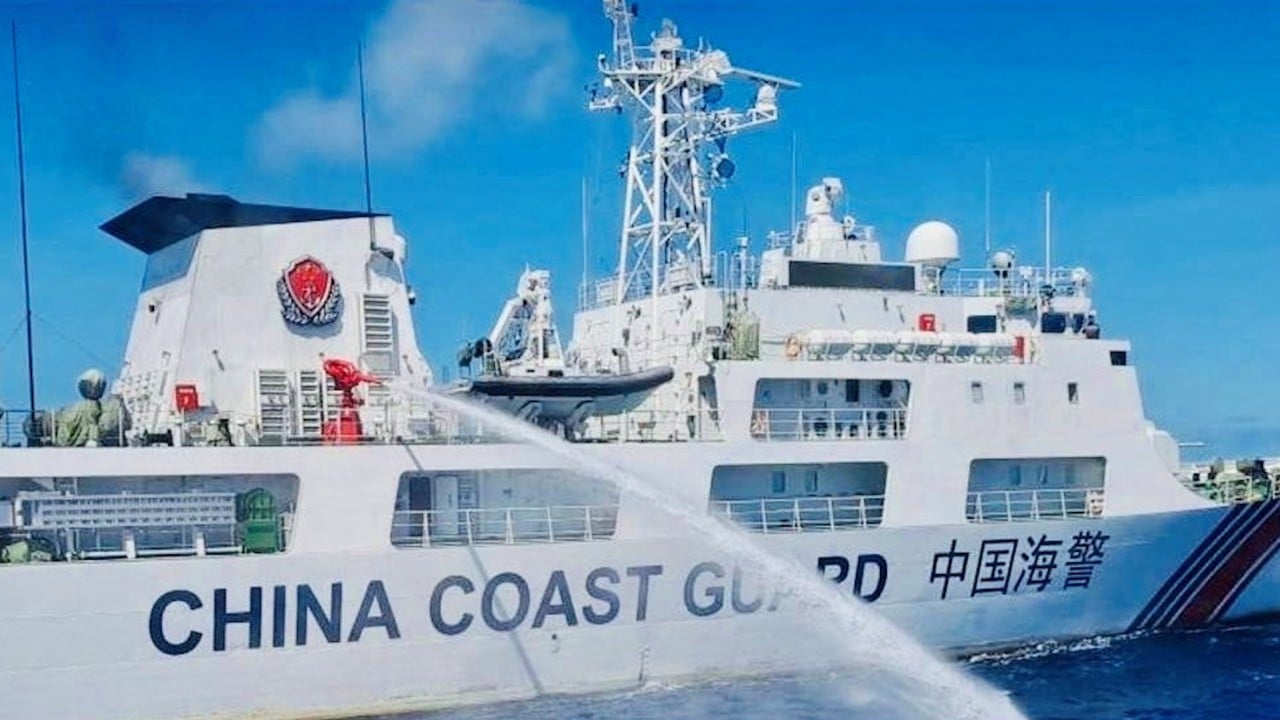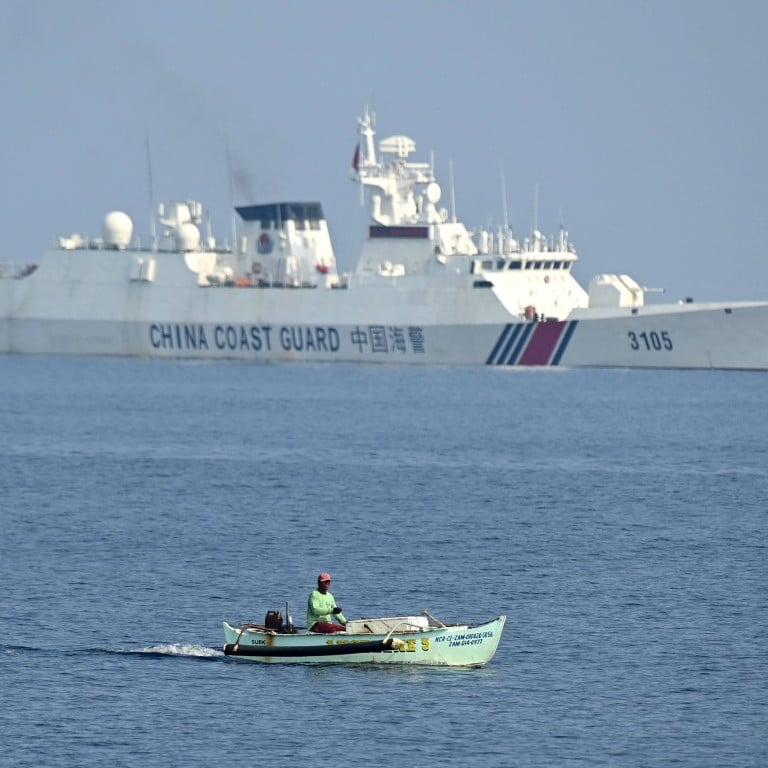
Global Impact: South China Sea tensions roll on as China, Philippines clash over Scarborough Shoal
- Global Impact is a weekly curated newsletter featuring a news topic originating in China with a significant macro impact for our newsreaders around the world
- In this issue, we take a look at the latest tensions and disputes in the South China Sea
The world’s attention may be on the Middle East now, but that doesn’t mean the hot conflicts – or potential hot conflicts – elsewhere, including in Asia, are going anywhere.
China gained control of the shoal in 2012 after a stand-off with the Philippines, and the area has seen bouts of high-tension encounters over sovereignty and fishing rights for years.
Along with the Philippines, other South China Sea claimants such as Malaysia and Vietnam have for years voiced concerns that Beijing is seeking to achieve its goals by blurring the lines between civilian and military forces, and by using force such as firing water cannons.
These so-called grey zone tactics are used by governments to compel others to act in a certain way, while enabling them to deny responsibility for what are seemingly civilian activities.
Regional observers have suggested that the new normal of heightened tensions is partly due to the muscular stance regarding the sea dispute taken by the Philippine President Ferdinand Marcos Jnr.
The likes of Singapore-based maritime expert Collin Koh have said that Manila has been underscoring points to dispel the view that he was being more assertive at the behest of Washington.
Few envisage a shooting war in the waters, even as the risk of such incidents ticks up as the number of near miss episodes – such as the one in August involving water cannons – rise.
Observers say open dialogue between China and other claimants remains crucial to reducing tensions.
A silver lining arising from the tensions is the closing of ranks among Asean nations. Vietnam and Indonesia signed an agreement on maritime boundaries in December, and there are also increasing signs of deeper maritime security ties between the Philippines and Vietnam.
60-Second Catch-up
Deep dives
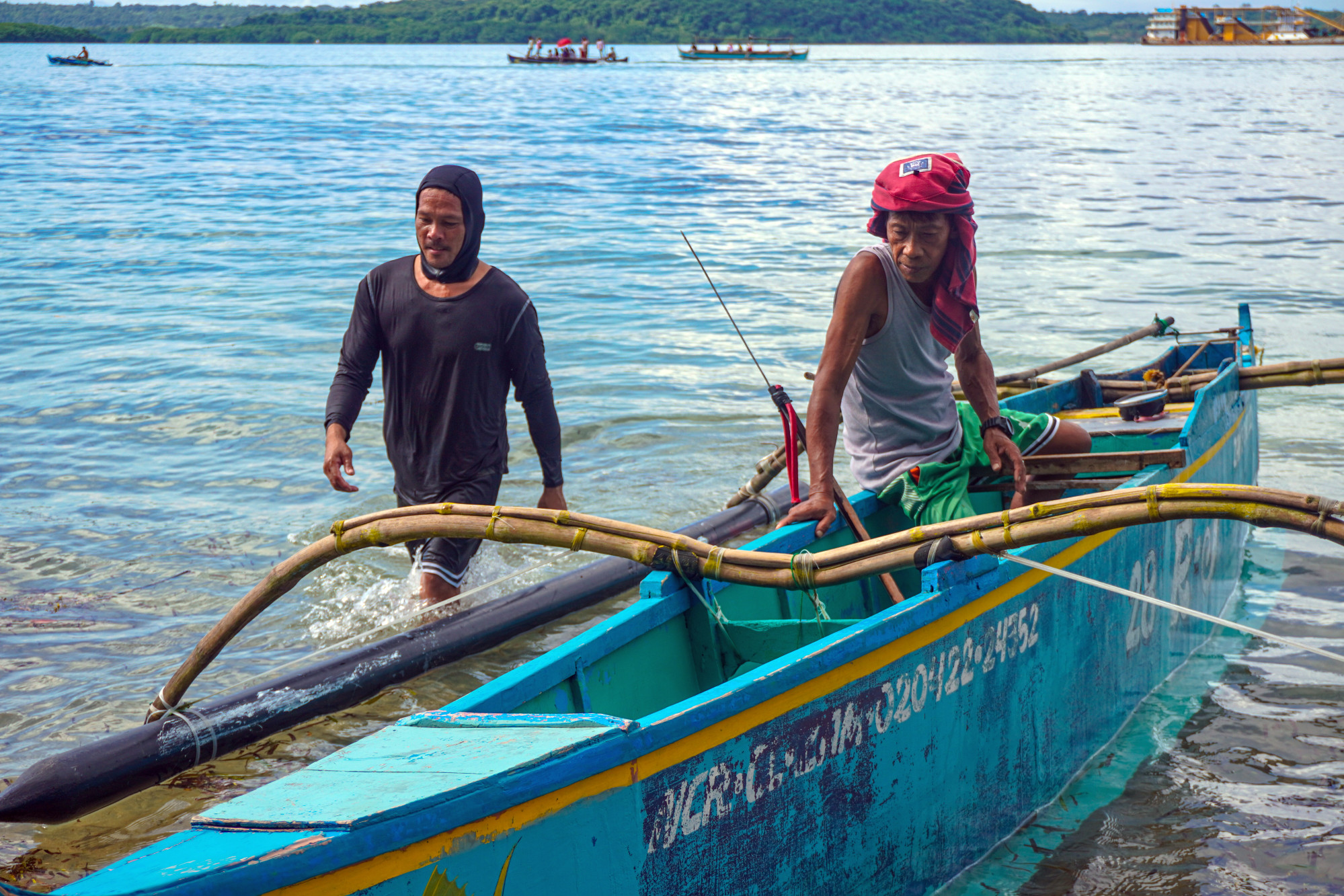
‘Always harassed’: the Filipino fishermen ensnared by South China Sea geopolitics
-
The tussle between China and the Philippines has strangled Filipino fishermen’s access to the fishing grounds which have sustained their community for generations
-
As the Scarborough Shoal’s strategic importance grows, instances of Chinese intimidation and Filipinos fighting back have also increased
This story was supported by the Pulitzer Center
“Kaya pa, I can still do it,” Rony smiles as he looks down the barrel of his spear gun. A split second later, the sharp end pierces the wooden plank set against a mango tree as a target outside his home on the northern Philippine island of San Salvador, in Zambales province.
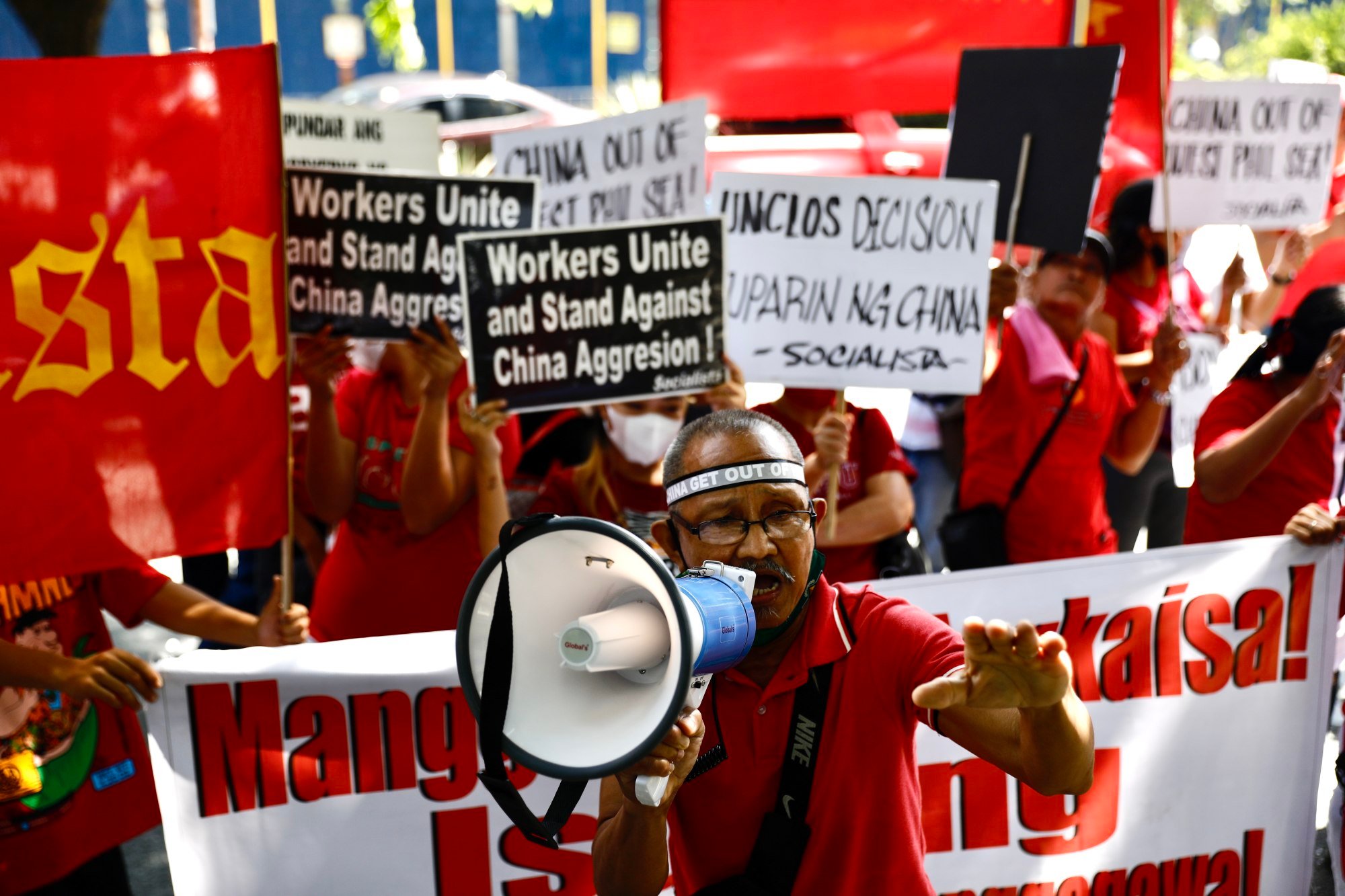
Will China-Philippines tensions make other South China Sea claimants nervous?
-
Southeast Asian neighbours may look on with unease at recent incidents between Manila and Beijing, says academic
-
The tensions arise amid discussions over a South China Sea code of conduct and may be a factor in negotiations
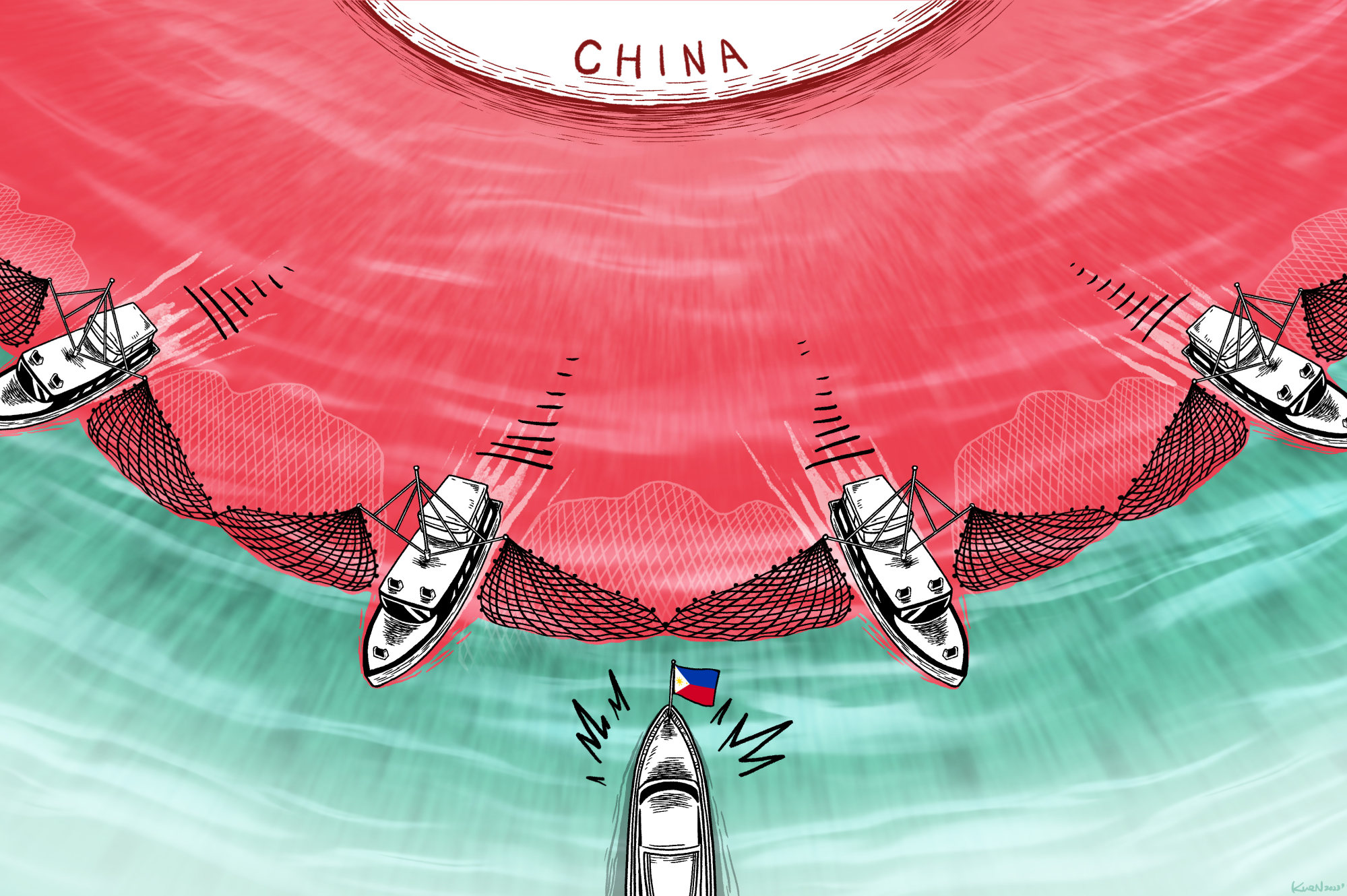
How Beijing is using ‘fishing militia’ to assert its claims in the South China Sea
-
Fishing boats joined a coastguard vessel in latest confrontation with the Philippines near Second Thomas Shoal
-
There is concern that China is blurring the lines between civilian and military forces to achieve its goals
It was their third mission in five weeks to deliver food, water and fuel to troops on the submerged reef in the Spratly archipelago.
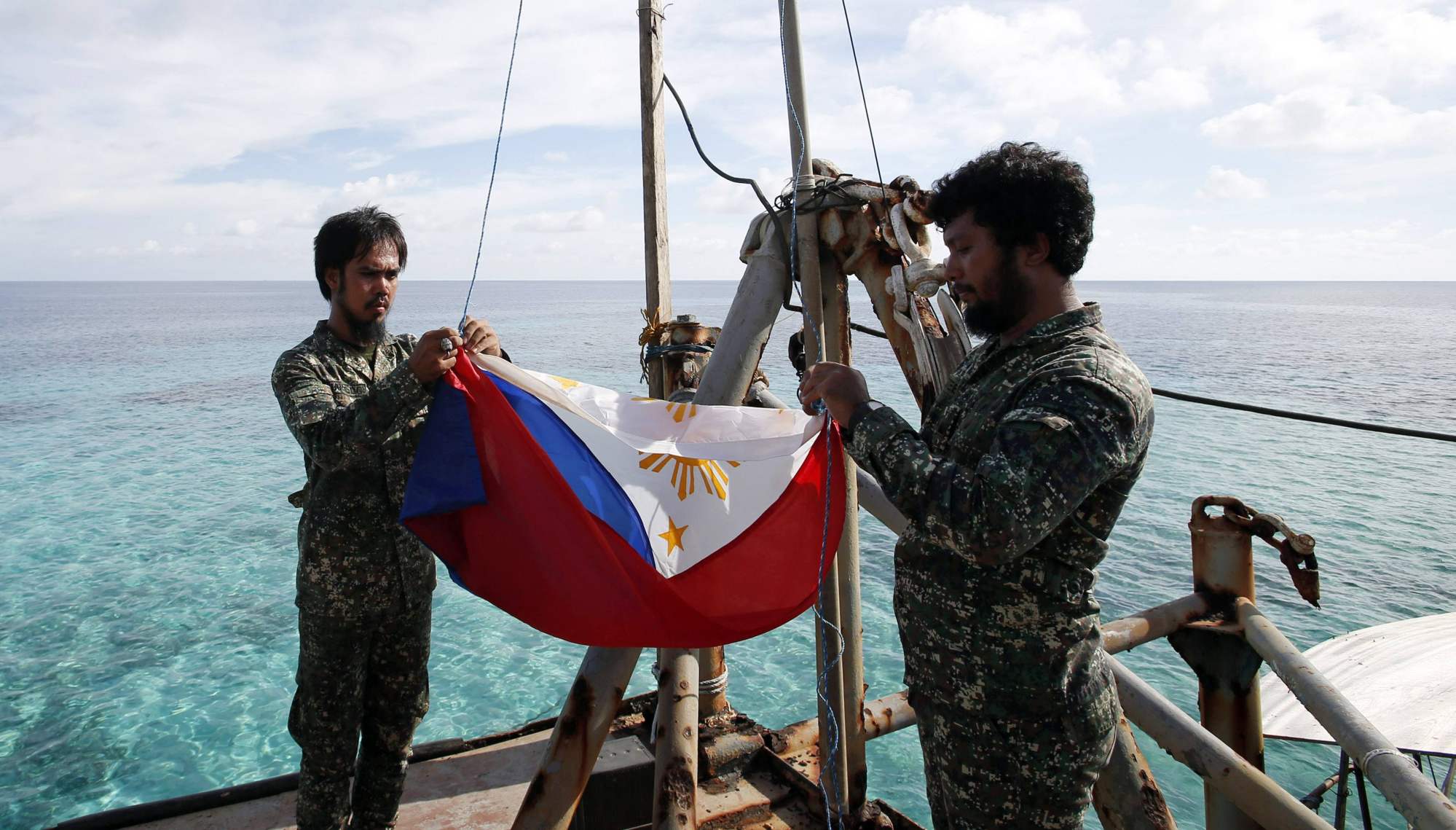
Did the Philippines ever agree to move its grounded South China Sea warship?
-
China says Manila reneged on its promise to remove the BRP Sierra Madre from Second Thomas Shoal, but a former Philippine defence chief disagrees
-
His comments suggest a degree of word play to keep the Chinese at bay, in an apparent tit-for-tat at China’s seizure of Mischief Reef in 1995
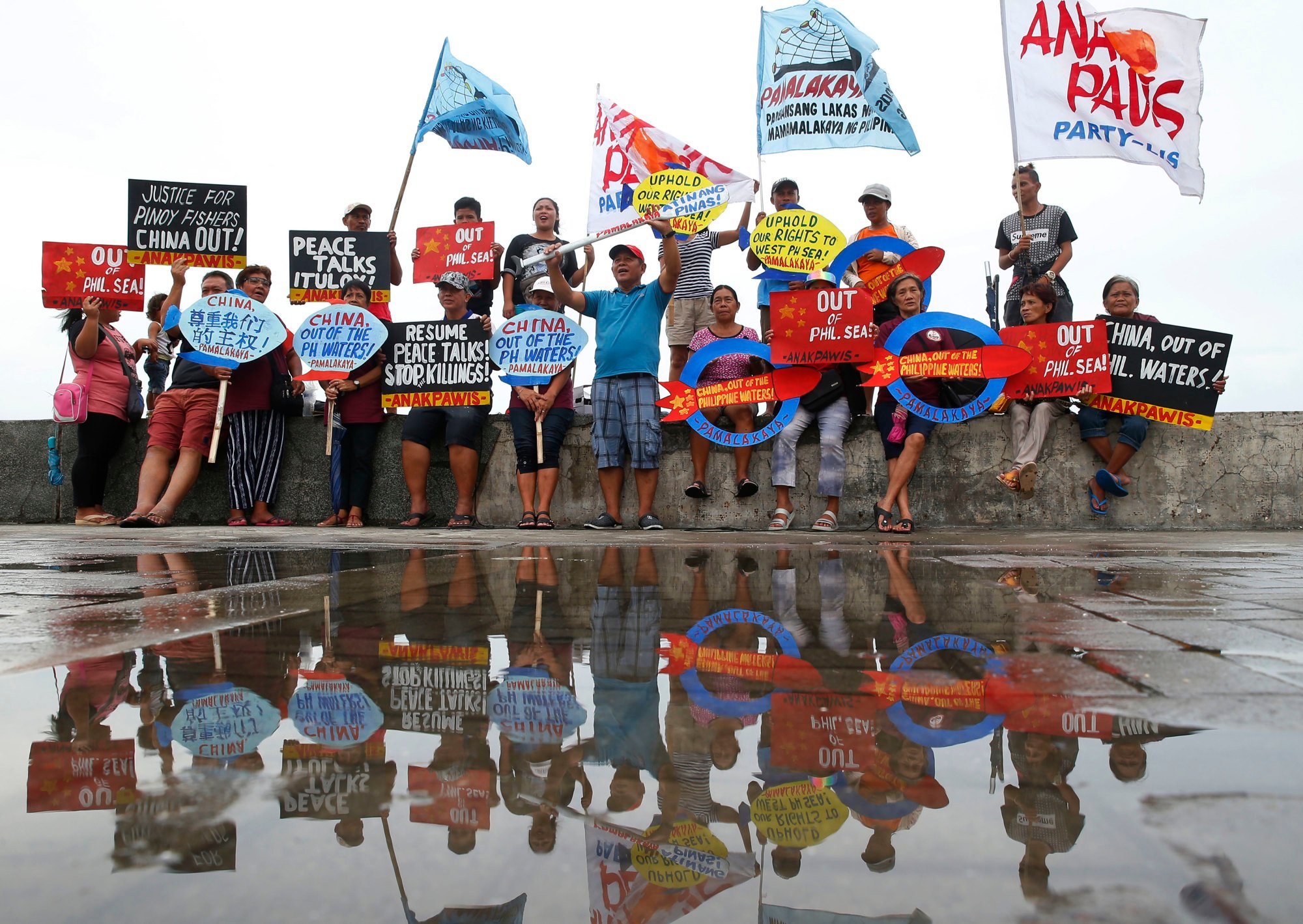
Filipinos pool supplies to spread Christmas cheer for South China Sea troops
-
NGOs, political parties and church leaders of the coalition are collecting essential goods for troops at a rusting warship in the South China Sea
-
Apart from the ‘Christmas civilian supply mission’, there will also be a concert in honour of fishing communities living near the resource-rich waterway
The initiative, organised by multiple NGOs, church leaders and political parties, will also include a concert in honour of the fishing communities living in provinces near the resource-rich waterway. Some proceeds from the charity drive would be distributed to the fishermen as well.
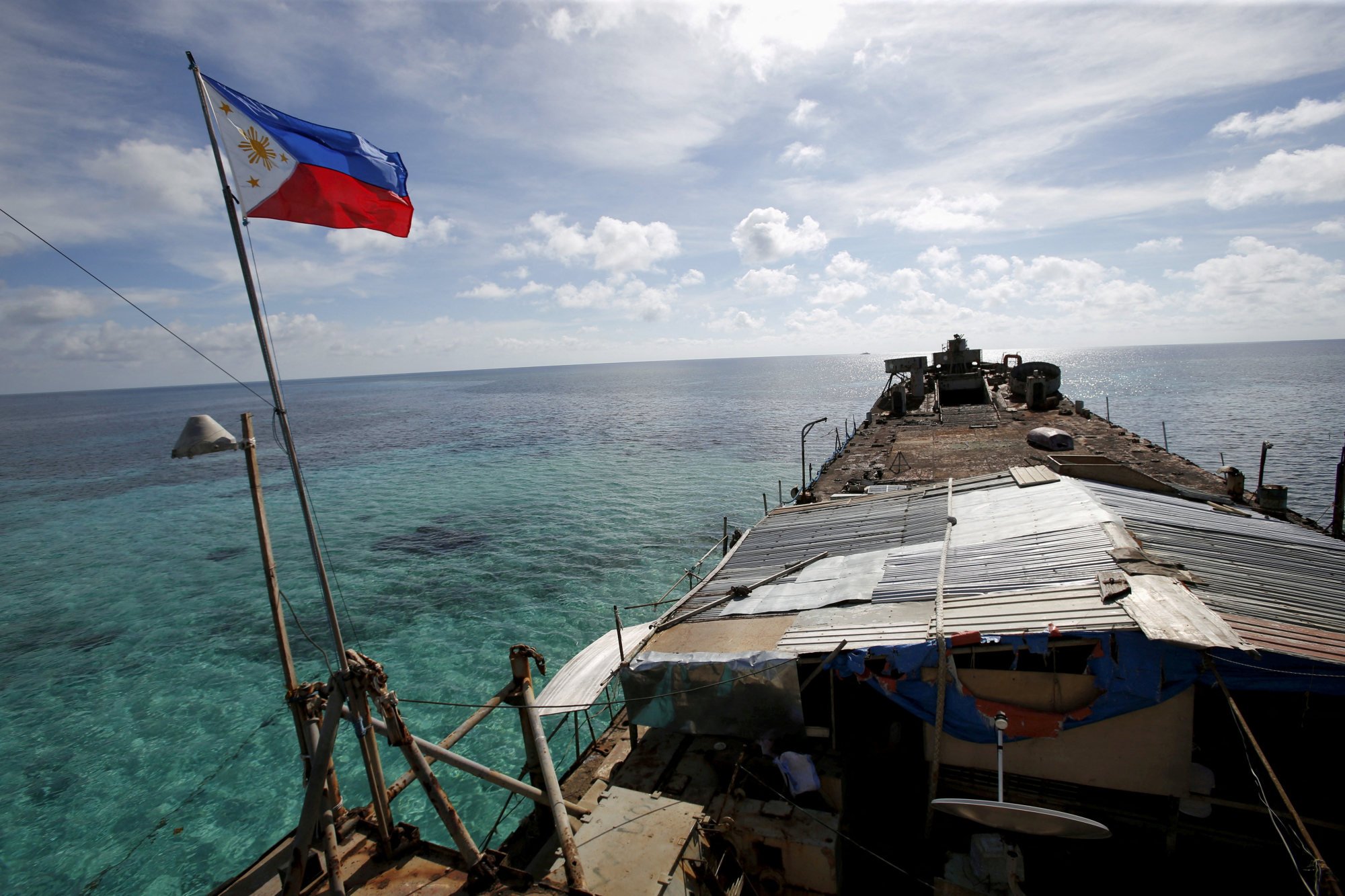
Philippine lawmaker hopes to turn South China Sea islands into tourism hotspot
-
Lawmaker Zaldy Co was part of a delegation to the Spratlys last week that agreed to create a master plan and develop Kalayaan into the new Maldives
-
The Kalayaan group of islands is located more than 450km (280 miles) west of Palawan, a province facing the South China Sea
Zaldy Co said the expedition to the Manila-held islands and reefs in Kalayaan, also known as the Spratly Islands, was a way to make the area productive than flexing military muscle there.

Will Philippine VP’s Beijing-friendly remarks blunt Manila’s South China Sea policy?
-
The VP’s congratulatory National Day message to Beijing is seen as a sign she and President Ferdinand Marcos Jnr may not be on the same page on China
-
She also faces scrutiny following a budget reallocation to agencies on the South China Sea row frontline, a move observers say is ‘a slap’ in the face
On September 27, leaders of the Philippine House of Representatives announced they would strip Duterte-Carpio’s Office of the Vice-President and the Department of Education, which she also heads, of all previously planned confidential funds totalling 650 million pesos (US$11.4 million) in next year’s national budget.
Global Impact is a weekly curated newsletter featuring a news topic originating in China with a significant macro impact for our newsreaders around the world.


